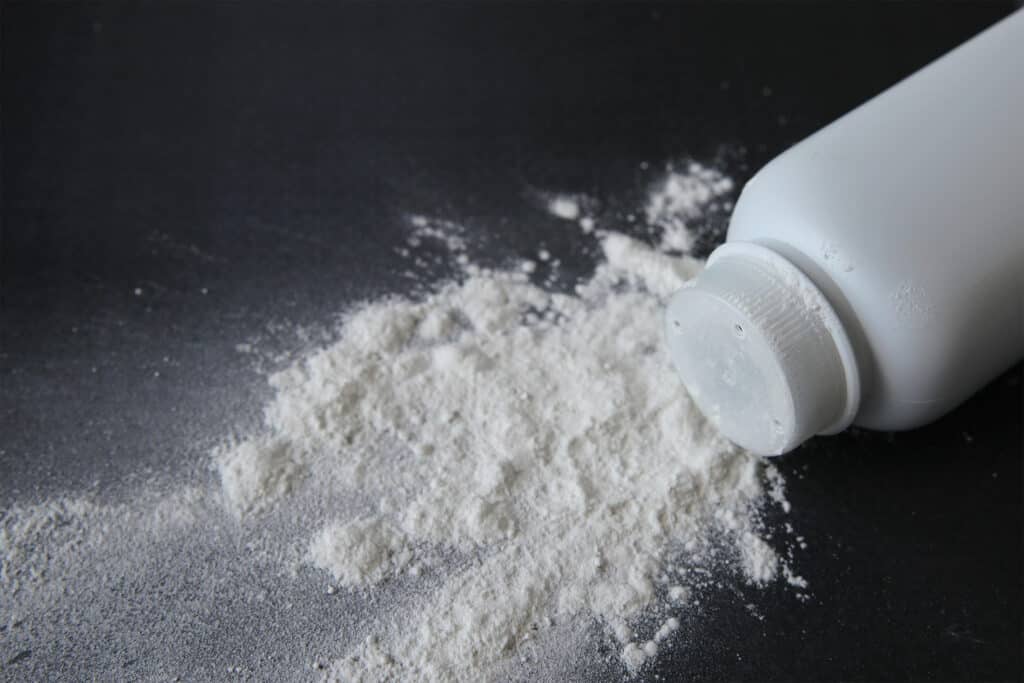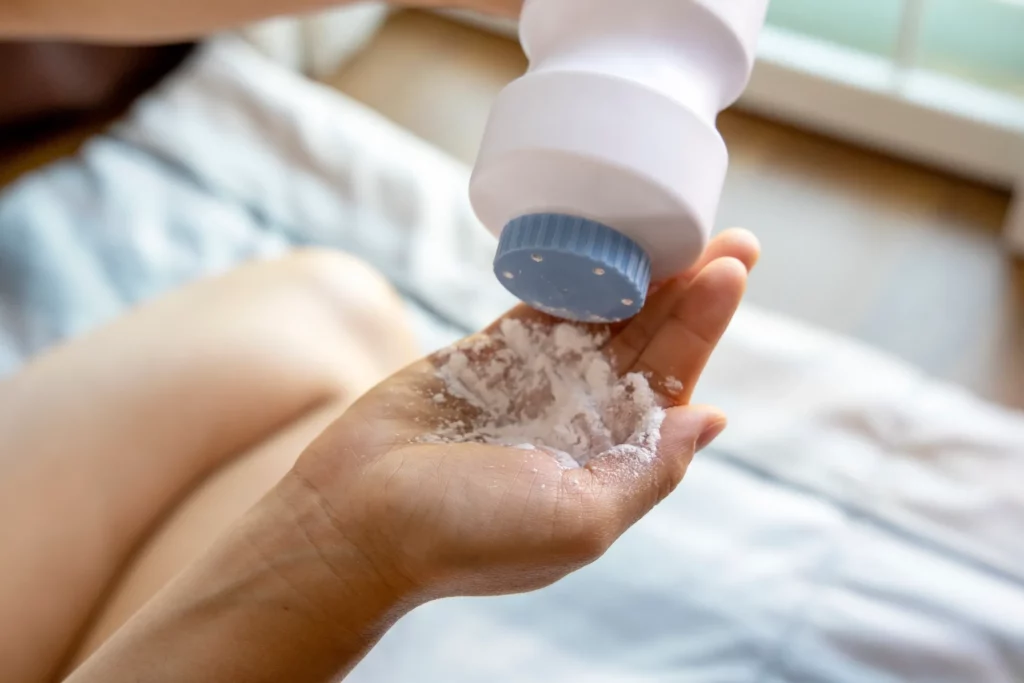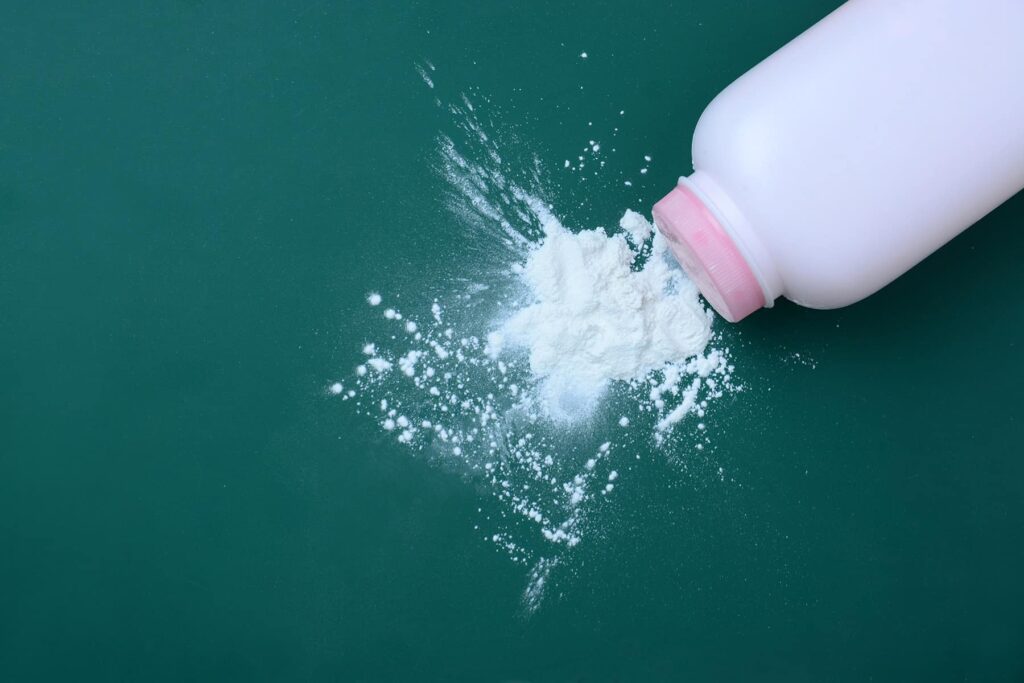Baby powder has been a staple in many households for generations, used to keep babies dry and comfortable. However, as with all products, there comes a question of expiration.
Does baby powder expire? The answer is yes, and it’s important to understand the implications of using expired baby powder.
Understanding Baby Powder Baby powder is typically made from talc or cornstarch and is used to absorb moisture, reduce friction, and prevent diaper rash. Some baby powders also contain added fragrances.
It’s important to note that not all baby powders are created equal, and some may contain harmful ingredients such as asbestos or heavy metals.
The Concept of Expiration Like most products, baby powder has a shelf life. The expiration date can typically be found on the bottom of the container or on the packaging.
Using expired baby powder can lead to a loss of effectiveness and potentially harmful side effects. It’s important to properly store and handle baby powder to ensure it lasts as long as possible.
Key Takeaways
- Baby powder does expire and can lose effectiveness over time.
- Using expired baby powder can lead to potential side effects.
- Proper storage and handling can help extend the shelf life of baby powder.
Understanding Baby Powder
Baby powder is a common product used for infants to keep their skin dry and prevent rashes. It is usually made of either talc or cornstarch as the main ingredient.
Talc is a mineral that is often used in cosmetics and personal care products, while cornstarch is made from organic materials.
Talc-based baby powder, also known as talcum powder, has been a popular choice for many years. However, concerns have been raised about the safety of talc due to its potential link to cancer.
As a result, many parents are now opting for cornstarch-based baby powder instead.
It is important to note that baby powder does have an expiration date, and it is recommended that it be used within 2-3 years of the manufacture date. Using expired baby powder can lead to a loss of effectiveness and potential skin irritation.
When using baby powder, it is important to apply it carefully to avoid inhalation. Inhalation of talcum powder has been linked to respiratory issues and even lung cancer.
It is recommended to apply the powder to your hands first and then gently rub it onto your baby’s skin.
In conclusion, understanding the main ingredients and expiration date of baby powder is important for ensuring its effectiveness and safety. Parents should also be cautious when using talc-based baby powder and consider alternatives such as cornstarch-based products.
Ingredients in Baby Powder
Baby powder is a product that is used to absorb moisture and reduce friction on the skin. The main ingredient in most baby powders is either talc or cornstarch.
Many organic baby powders are also available that use organic materials as the main ingredient.
Talc-Based Baby Powder
Talc is a mineral that is composed of magnesium, silicon, and oxygen. It is a naturally occurring mineral that is mined from the earth. Talc is commonly used in cosmetics and personal care products because it is an absorbent and helps to reduce friction on the skin.
Talc-based baby powder is made from talc that has been finely ground and purified. It is commonly used to absorb moisture and reduce friction on the skin.
However, there have been concerns about the safety of talc-based baby powder because it may be contaminated with asbestos.
Corn Starch
Corn starch is an inorganic material that is derived from corn. It is commonly used in baking and cooking as a thickener. Corn starch is also used in baby powder because it is an absorbent and helps to reduce friction on the skin.
Corn starch-based baby powder is a popular alternative to talc-based baby powder because it is considered to be safer. It is also hypoallergenic, making it a good choice for babies with sensitive skin.
Organic Materials
Organic baby powders are made from natural materials that are free from synthetic chemicals and pesticides. The main ingredient in organic baby powder can vary, but common ingredients include corn starch, arrowroot powder, and kaolin clay.
Organic baby powders are a good choice for parents who are concerned about the safety of talc-based baby powder. They are also a good choice for parents who want to use natural products on their baby’s skin.
In summary, the main ingredients in baby powder are talc and corn starch. Talc-based baby powder is commonly used to absorb moisture and reduce friction on the skin, but there have been concerns about its safety. Corn starch-based baby powder is a popular alternative to talc-based baby powder because it is considered to be safer. Organic baby powders are also available and are made from natural materials that are free from synthetic chemicals and pesticides.
The Concept of Expiration
When it comes to consumer products, expiration dates are an important consideration. An expiration date is the date after which a product should not be used, as it may no longer be safe or effective.
This is particularly important for products that are used on the body, such as baby powder.
The shelf life of baby powder is typically around three years from the manufacturing date. After this time, the product may expire and should be discarded.
It is important to note that expired baby powder may not be harmful, but it may no longer be effective in performing its intended function.
Manufacturers of baby powder typically include expiration dates on their products. These dates indicate the period of time during which the product is expected to remain effective.
It is important to check the expiration date before using the product, and to discard it if it has expired.
In addition to expiration dates, there are other factors that can affect the shelf life of baby powder. For example, exposure to moisture or humidity can cause the powder to clump or become less effective.
It is important to store baby powder in a cool, dry place to maintain its quality.
In summary, the concept of expiration is an important consideration when using baby powder. It is important to check the expiration date before using the product, and to discard it if it has expired.
Additionally, proper storage can help to maintain the shelf life of baby powder.
Effects of Expired Baby Powder
Expired baby powder can have a variety of effects that can impact its quality and safety for use. Some of these effects include changes in texture, scent, and the potential for bacterial growth.
Moisture and air can also impact the quality of baby powder over time, leading to clumps and a loss of effectiveness.
The seal on the packaging can also play a role in the expiration of baby powder. If the seal is broken or compromised, air and moisture can enter the container, leading to a faster expiration date.
Heat can also impact the quality of baby powder, as exposure to high temperatures can cause the powder to clump and lose its texture.
Using expired baby powder can potentially lead to skin irritation, diaper rash, and other skin conditions. The texture of the powder may also be affected, leading to discomfort for the child or adult using the product.
Inhaling expired baby powder can also lead to respiratory problems, particularly if the powder has a foul odor.
While it is generally not recommended to use expired baby powder, it may still be safe to use in some cases. If the powder has not been exposed to moisture or air and has been stored in a cool, dry place, it may still be effective.
However, it is important to note that using expired baby powder does come with some risks and should be avoided if possible.
Overall, it is important to pay attention to the expiration date and storage instructions on baby powder packaging to ensure that the product is safe and effective for use. If in doubt, it is best to err on the side of caution and dispose of expired baby powder.
Storage and Handling of Baby Powder
Proper storage and handling of baby powder is crucial to ensure its quality and effectiveness.
Here are some important points to keep in mind:
- Moisture: Baby powder should be kept away from moisture as it can cause clumping and reduce its effectiveness. Avoid storing it in areas with high humidity, such as bathrooms.
- Packaging and Seal: The packaging and seal of the baby powder should be checked before purchasing. Make sure that the packaging is intact and the seal is not broken. A broken seal can allow moisture and other contaminants to enter the packaging.
- Cool, Dry Place: Store baby powder in a cool, dry place away from direct sunlight. The ideal temperature for storage is between 60°F and 75°F.
- Unopened Baby Powder: Unopened baby powder can last up to three years if stored properly. It is best to use it before the expiration date mentioned on the packaging.
- Opened Baby Powder: Once opened, baby powder should be used within a year. It is important to keep the lid tightly closed when not in use to prevent moisture from entering the packaging.
Proper storage and handling of baby powder can help maintain its quality and effectiveness. By following the above guidelines, parents can ensure that their baby’s skin remains dry and comfortable.
Alternatives to Baby Powder
While baby powder has been a go-to product for many parents, there are other alternatives that can be used in its place. Some of these alternatives include baking soda, cornstarch, and dry shampoo.
Baking soda can be used as a substitute for baby powder. It is a natural and safe alternative that can help absorb moisture and odor. However, it is important to note that baking soda should not be used on broken or irritated skin.
Cornstarch is another alternative to baby powder. It is a natural and safe product that can help absorb moisture and soothe skin. Cornstarch is also effective in preventing chafing.
However, it is important to keep in mind that cornstarch should not be used on broken or irritated skin.
Dry shampoo can also be used as an alternative to baby powder. It is a convenient and effective option for absorbing excess oil and sweat. However, it is important to note that dry shampoo should only be used on hair and not on skin.
It is important to keep in mind that using an opened powder, such as flour or talcum powder, is not recommended as they can clump up and cause irritation.
Additionally, playing cards and clothing should not be used as alternatives to baby powder as they are not designed for this purpose.
When choosing an alternative to baby powder, it is important to consider safety. Asbestos has been found in some talcum powders, so it is important to choose products that are asbestos-free.
It is also important to use products on the safe side and follow the manufacturer’s instructions for use.
Safety Concerns with Baby Powder
Baby powder has been a popular product for many years, but there are some safety concerns associated with its use. Some of these concerns include:
Talc-Based Baby Powders and Ovarian Cancer
Talc is a mineral that is often used in baby powder. There have been concerns that talc-based baby powders may increase the risk of ovarian cancer in women who use them for genital hygiene.
However, the evidence on this is mixed, and more research is needed to confirm any link between talc-based baby powders and ovarian cancer.
Inhalation and Respiratory Problems
Inhaling baby powder can be harmful, especially for babies. The tiny particles in the powder can irritate the lungs and cause respiratory problems. This is why it’s important to avoid using baby powder on a baby’s face or near their nose.
Skin Irritation and Diaper Rash
Some babies may be sensitive to the ingredients in baby powder, which can cause skin irritation and diaper rash. This is more likely to occur with talc-based baby powders than with cornstarch-based baby powders.
Bacteria and Mold
Baby powder can also be a breeding ground for bacteria and mold if it gets wet or is not stored properly. This can be a concern, especially for babies with weakened immune systems.
Asbestos Contamination
There have been concerns about asbestos contamination in talc-based baby powders. Asbestos is a mineral that is linked to lung cancer and mesothelioma. However, most talc-based baby powders sold in the US are now asbestos-free.
In summary, while baby powder can be a useful product for some, there are potential safety concerns associated with its use. It’s important to be aware of these concerns and to use baby powder carefully and appropriately.
Related Posts:
Frequently Asked Questions
When it comes to baby powder, there are many questions that parents and caregivers may have. Here are some of the most frequently asked questions about baby powder expiration:
Does baby powder expire?
Yes, baby powder does expire. The shelf life of baby powder is typically around three years from the date of manufacture. After this time, the powder may lose its effectiveness and may not work as well as it should.
What happens if you use expired baby powder?
Using expired baby powder may not be harmful, but it may not work as well as it should. The powder may not be as effective at absorbing moisture, which could lead to skin irritation or other issues.
It’s always best to use fresh baby powder to ensure that it works as intended.
How can you tell if baby powder is expired?
Most baby powder containers will have an expiration date printed on them. If you’re not sure if your powder is expired, check the packaging for this date. If the date has passed, it’s best to discard the powder and purchase a fresh container.
Can you use baby powder after the expiration date?
While it’s technically possible to use baby powder after the expiration date, it’s not recommended. The powder may not work as well as it should, and could potentially cause skin irritation or other issues.
It’s always best to use fresh baby powder to ensure that it works as intended.
What are the expiration dates for baby powder?
The expiration dates for baby powder can vary depending on the brand and manufacturer. However, most baby powder containers will have an expiration date printed on them.
This date is typically around three years from the date of manufacture.
Can you extend the shelf life of baby powder?
There’s no surefire way to extend the shelf life of baby powder. However, storing the powder in a cool, dry place away from sunlight can help to preserve its effectiveness.
Additionally, using a clean, dry applicator each time you use the powder can help to prevent contamination and extend its shelf life.
Frequently Asked Questions
How long does baby powder last?
Baby powder typically lasts for 2-3 years from the date of manufacture. However, it is important to check the expiry date before using it.
Can expired powder be used?
It is not recommended to use expired baby powder as it may not be effective and could potentially cause harm to the baby’s skin.
What will happen if you use expired baby powder?
Using expired baby powder may result in skin irritation, rashes, or other adverse effects. It is best to discard expired powder and purchase a new one.
How to know if baby powder is expired?
One way to check if baby powder is expired is to look for the expiry date on the packaging. If the date has passed, the powder should be discarded. Another way to tell if the powder is expired is to check for any changes in texture, color, or smell.
How to check expiry date of Johnson baby powder?
The expiry date of Johnson baby powder can be found on the bottom of the container or on the packaging. It is usually printed in a format such as “EXP MM/YYYY” or “Best Before MM/YYYY”.
Why is baby powder no longer recommended?
Baby powder is no longer recommended by many pediatricians and health organizations due to concerns about the potential health risks associated with inhaling talc particles.
Some studies have linked talcum powder to an increased risk of ovarian cancer and respiratory problems. As a result, many parents are now opting for alternative products such as cornstarch-based powders.
Related Post: Do Diapers Expire?

Iesha is a loving mother of 2 beautiful children. She’s an active parent who enjoys indoor and outdoor adventures with her family. Her mission is to share practical and realistic parenting advice to help the parenting community becoming stronger.



